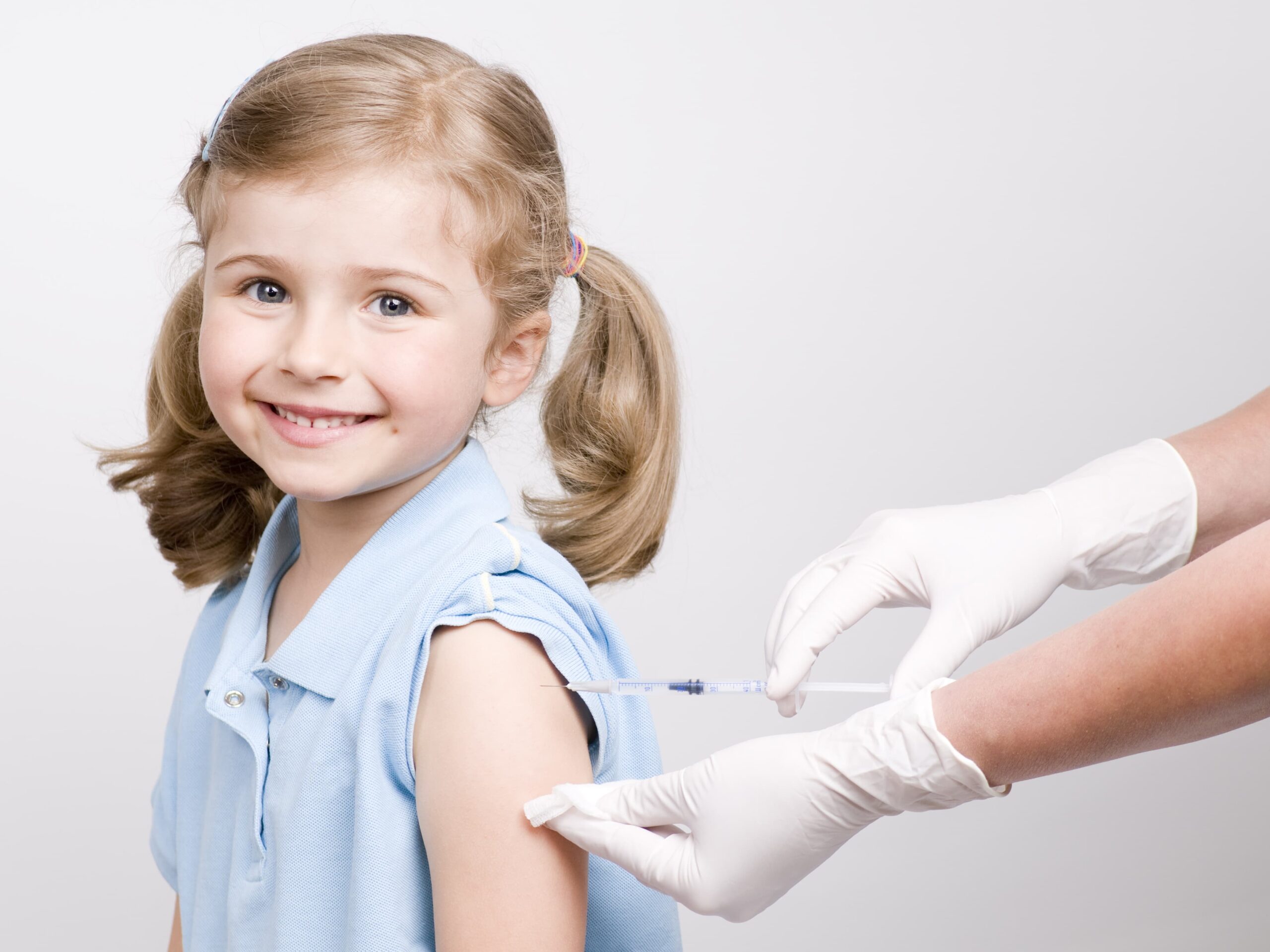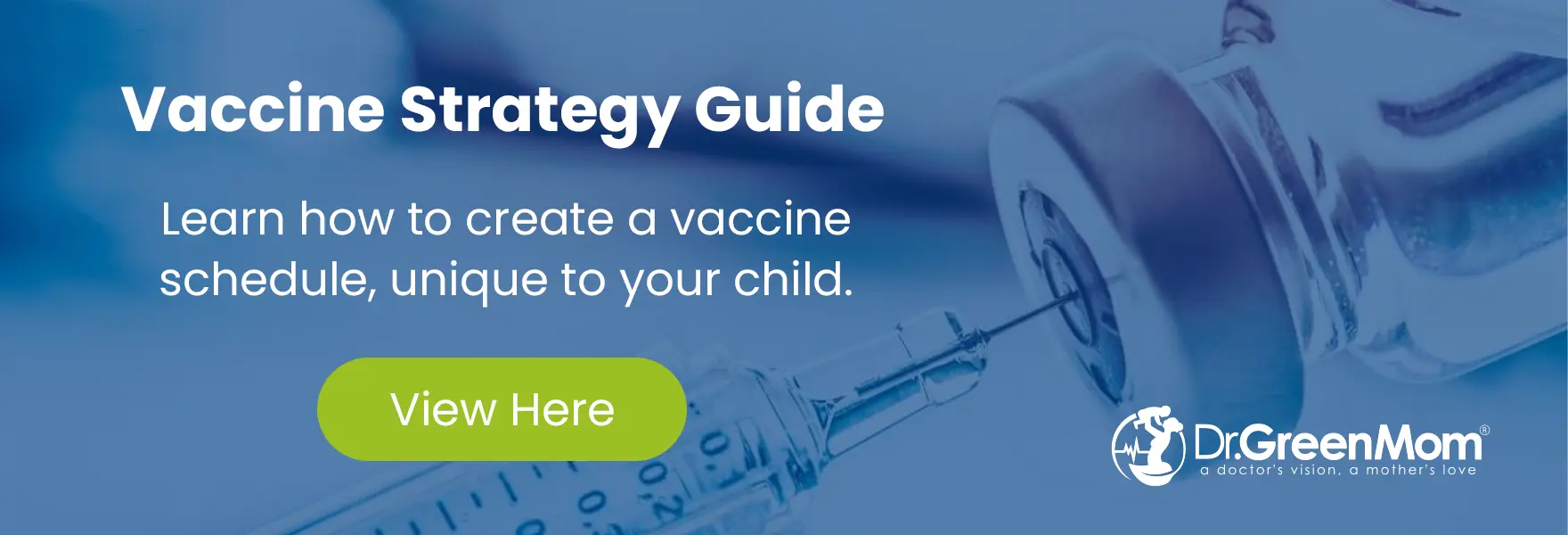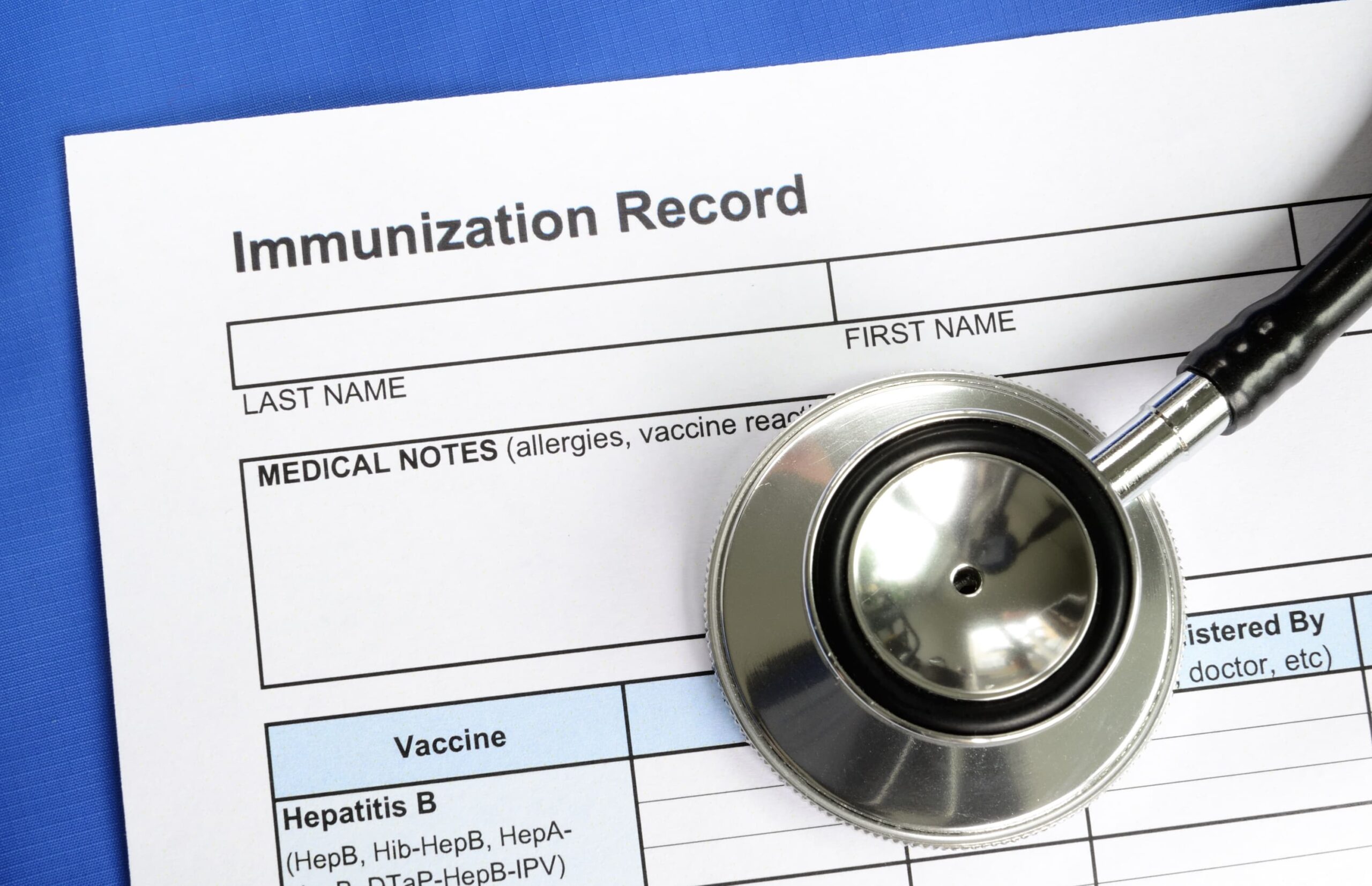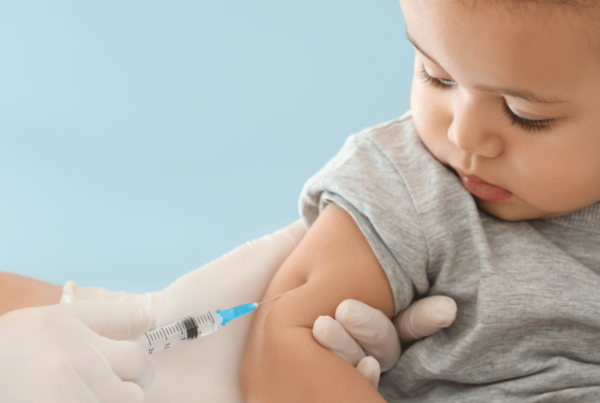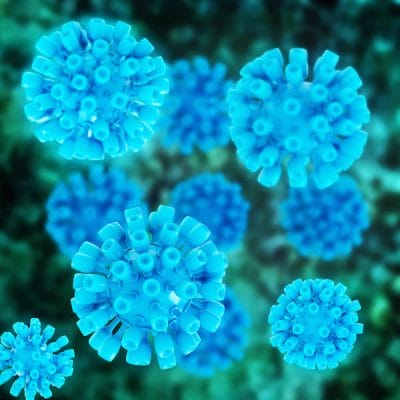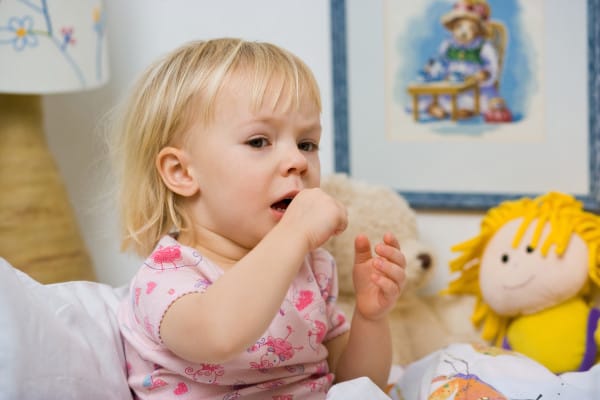In the wake of the heated Disneyland measles outbreak, and due to the media frenzy that ensued, I’ve been bombarded with emails from concerned parents who are possibly rethinking their decision not to vaccinate. This article is not meant to help you make your decision whether you should vaccinate, but if your decision is to vaccinate or re-vaccinate, this article is for you!
Childhood vaccines have become a very important part of, well, childhood. In the first two years of life, our kiddos get inoculated against 14 diseases; a minimum of 17 shots; and as many as 6 injections in a single visit to the pediatrician. [1]
That’s a lot of vaccinating, so let’s face it, we want to make sure they work. What I also want to touch on is the precautions for vaccinating. Here we go!
1. Personal and family history of epilepsy and/or febrile seizures.
It is well documented that children with a personal and/or family history of febrile seizures are at high risk for having a febrile seizure post the MMR vaccine.
“The highest risk difference was found among children with a personal history of febrile seizures (19.47 per 1000; 95% CI, 16.05-23.55) and for children with a family history of febrile seizures (3.97 per 1000; 95% CI, 2.90-5.40).” [2]
Research also shows the DTaP vaccine being known for inducing febrile seizures. [3]
Here’s the very important point:
There is correlation between sudden and unexplained death in children, SUDC, and individual and or family history of febrile seizures. [4]
Further, another study repeated the above correlation, and cautions the importance of further research to:
“develop markers (including genetic) to identify which patients with febrile seizures are at risk for sudden unexplained death in childhood, and to provide guidance for families and physicians.” [5]
I strongly caution the MMR and the DTaP vaccine in those individuals who are at high risk for febrile seizure (family history included). Inducing febrile seizures in these persons is a major risk most parents shouldn’t be willing to take.
2. Check for Immune Deficiency.
Make certain your child does NOT suffer from any type of immune deficiency prior to vaccination. Most vaccines are contraindicated under these circumstances. These individuals usually present with recurrent infections involving the ears, sinuses, nose, bronchi and lungs. Our hero in the know, the CDC, has put together a nice table of contraindicated vaccines for the immunocompromised. Thank you, CDC!
I’ve take the liberty and given you an extensive list of common immune deficiencies (if you’d like the less common ones, email me):
- Common Variable Immune Deficiency
- X-Linked Agammaglobulinemia
- Selective IgA Deficiency
- Severe Combined Immune Deficiency
- Chronic Granulomatous Disease
- Wiskott-Aldrich Syndrome
- Hyper IgM Syndrome
- DiGeorge Syndrome
- IgG Subclass Deficiency and Specific Antibody Deficiency
- Ataxia Telangiectasia
- Hyper IgE Syndrome
- Complement Deficiencies
It is worth noting, the hepatitis B vaccine is given day 1 of your child’s life. It may be hard to recognize an immune deficiency this early. Some of the deficiencies listed above may not show symptoms until the second or third decade of life.
3. Months prior to giving birth.
It is imperative that parents research vaccines for themselves, mostly so they have questions they can ask their doctor. This also makes for truth when signing any “informed consent.” My Advice for Parents is a good place to begin.
Below is a list of diseases and the vaccines they protect against. These are for general education purposes and are not substitute for medical advice on vaccination.
- Hepatitis B
- Diphtheria, Tetanus, Pertussis
- Haemophilus influenzae type B (Hib)
- Polio
- Measles, Mumps, Rubella (MMR)
- Varicella (Chicken Pox)
- Hepatitis A
- Pneumococcal Disease
- Meningococcal Meningitis (COMING SOON)
- Influenza (COMING SOON)
- Rotavirus
You can also check here for in depth vaccine information and studies, both safety and injury.
4. Two weeks prior to vaccination.
#1 Start your child on a good probiotic. If you are still pregnant or nursing, mom should start one, too.
Research indicates probiotics raise immune response to protein antigens, the important component in vaccines that we want to mount a response against. Infants were vaccinated against DTaP, Hib, and polio. The results speak for themselves:
“..feeding LF19 (name of the probiotic) did not prevent infections, but increased the capacity to raise immune responses to protein antigens, with more pronounced effects in infants breastfed <6 months.” [6]
My probiotic recommendations:**
- Infants: Klaire there-biotic infant formula or HMF natogen
- Toddlers/Kids: Klaire there-biotic children’s chewable
- Pregnant Mothers: Klaire Ther-biotic complete or HMF Maternity
- Nursing Mothers: Klaire There-biotic complete
Note: Probiotics should be taken with food (or rubbed around areola for nursing infant).
**I only recommend pharmaceutical grade supplements. These recommendations can only legally be sold to you by a physician.
#2 Start your child on aqueous zinc; if you are still pregnant or nursing, the zinc is already in your prenatal vitamin.
Science says zinc is the “metal of life.” It sure is! Studies on infants indicate:
“Zinc deficiency triggers an array of health problems in children, many of which can become chronic and serious, such as weight loss, stunted growth, weakened resistance to infections, and early death.” [7]
And studies on pregnant mothers show:
“A beneficial effect of prenatal zinc supplementation on infants’ neurobehavioral development and immune function..” [7]
Everyone needs a little zinc in their life! Ask your doctor what dosage is right for you and your child.
My aqueous zinc recommendations:**
- Professional Complimentary Health Zn
**I only recommend pharmaceutical grade supplements. These recommendations can only legally be sold to you by a physician.
5. The day of vaccination.
#1 Ask 8
Some really great physicians over at The National Vaccine Information Center have compiled a list of 8 questions to ask yourself and your doctor on the day of vaccination:
Ask 8:
- Am I or my child sick right now?
- Have I or my child had a bad reaction to a vaccination before?
- Do I or my child have a personal or family history of vaccine reactions, neurological disorders, severe allergies or immune system problems?
- Do I know the disease and vaccine risks for myself or my child?
- Do I have full information about the vaccine’s side effects?
- Do I know how to identify and report a vaccine reaction?
- Do I know I need to keep a written record, including the vaccine manufacturer’s name and lot number, for all vaccinations?
- Do I know I have the right to make an informed choice?
If you answered yes to questions 1, 2, and 3, or no to questions 4, 5, 6, 7 and 8 and do not understand the significance of your answer, you may want to explore information on NVIC’s website to better understand the importance of your answer. These questions are designed to educate consumers about the importance of making fully informed vaccine decisions.” [8]
#2 Dose with vitamin A prior to vaccination.
I love what vitamin A can do for the immune system. Check this out:
“Dietary supplementation with vitamin A to children has been used to improve antibody responses to several vaccines, including measles, tetanus, diphtheria, and polio.” [9]
Another study in Africa:
“Vitamin A enhanced the antibody response to measles vaccine given at 9 months of age significantly, especially in boys. The effects were sustained over time; the children who had received vitamin A with their measles vaccine were more protected against measles at 6-8 years of age.” [10]
Further:
“To protect against the consequences of vitamin A deficiency the World Health Organization recommends that high-dose vitamin A supplements be given together with routine vaccines to children between 6 months and 5 years of age in more than 100 low-income countries.” [10]
Dosage recommendations of vitamin A set forth by the WHO, as measles treatment is this:
“A high dose of vitamin A is given immediately on diagnosis and repeated the next day. The recommended age-specific daily doses are 50 000 IU for infants aged <6 months, 100 000 IU for infants aged 6–11 months, and 200 000 IU for children aged ≥12 months.” [11]
Talk to your pediatrician about dosage recommendations that are right for your child.
#3 Absolutely NO candy or sweets as a reward after vaccination.
I know you’re wanting to reward your little one for being so brave, but let’s think of something other than sugar, please.
Research shows the immune system cannot properly do it’s job in the presence of sugar. And the point of vaccination is to make certain the immune system mounts a response to the antigen complex in the vaccine.
“The decrease in phagocytic index was rapid following the ingestion of simple carbohydrates. The greatest effects occurred between 1 and 2 hr postprandial, but the values were still significantly below the fasting control values 5 hr after feeding..” [12]
I hope this helps! I always love hearing from you. What are some of the things you do on vaccine day for your child? And if you don’t vaccinate, what are things you do to help ensure your child’s health? Comments, both positive and negative, help to keep me on my toes!
Resources:
Skibinski DA, Baudner BC, Singh M, O’Hagan DT. Combination Vaccines. Journal of Global Infectious Diseases 2011;3(1):63-72. doi:10.4103/0974-777X.77298.
Mogens Vestergaard, MD, PhD; Anders Hviid, MSci; Kreesten Meldgaard Madsen, MD, PhD; Jan Wohlfahrt, MSci; Poul Thorsen, MD, PhD; Diana Schendel, PhD; Mads Melbye, MD, DMSci; Jørn Olsen, MD, PhD. MMR Vaccination and Febrile Seizures: Evaluation of Susceptible Subgroups and Long-term Prognosis. JAMA. 2004;292(3):351-357. doi:10.1001/jama.292.3.351. (Full Text)
Sun Y1, Christensen J, Hviid A, Li J, Vedsted P, Olsen J, Vestergaard M. Risk of febrile seizures and epilepsy after vaccination with diphtheria, tetanus, acellular pertussis, inactivated poliovirus, and Haemophilus influenzae type B. JAMA. 2012 Feb 22;307(8):823-31. doi: 10.1001/jama.2012.165.
Kinney HC1, Chadwick AE, Crandall LA, Grafe M, Armstrong DL, Kupsky WJ, Trachtenberg FL, Krous HF. Sudden death, febrile seizures, and hippocampal and temporal lobe maldevelopment in toddlers: a new entity. Pediatr Dev Pathol. 2009 Nov-Dec;12(6):455-63. doi: 10.2350/08-09-0542.1.
Holm IA1, Poduri A, Crandall L, Haas E, Grafe MR, Kinney HC, Krous HF. Inheritance of febrile seizures in sudden unexplained death in toddlers. Pediatr Neurol. 2012 Apr;46(4):235-9. doi: 10.1016/j.pediatrneurol.2012.02.007.
West CE1, Gothefors L, Granström M, Käyhty H, Hammarström ML, Hernell O. Effects of feeding probiotics during weaning on infections and antibody responses to diphtheria, tetanus and Hib vaccines. Pediatr Allergy Immunol. 2008 Feb;19(1):53-60. Epub 2007 Dec 11.
Kuljeet Kaur, Rajiv Gupta, Shubhini A. Saraf, and Shailendra K. Saraf. Zinc: The Metal of Life. Comprehensive Reviews in Food Science and Food Safety r Vol. 13, 2014. doi: 10.1111/1541-4337.12067
The National Vaccine Information Center
Inna G. Ovsyannikova et al. Polymorphisms in the Vitamin A Receptor and Innate Immunity Genes Influence the Antibody Response to Rubella Vaccination. J Infect Dis. (2010) 201 (2): 207-213.doi: 10.1086/649588
Benn CS. Combining vitamin A and vaccines: convenience or conflict? Dan Med J. 2012 Jan;59(1):B4378.
WHO Position Paper: Measles. 2009.
Albert Sanchez, et al. Role of sugars in human neutrophilic phagocytosis. Am J Clin Nutr November 1973 vol. 26 no. 11 1180-1184.
